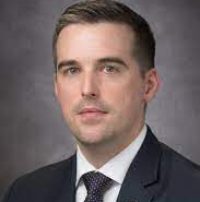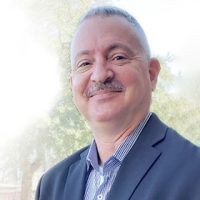Expert Panel:

Dr. Patrick Reville, Assistant Professor in the Department of Leukemia at The University of Texas MD Anderson Cancer Center

Jeff Folloder, Moderator and CLL patient advocate
Our recent CLL Global Research Foundation virtual town hall featured CLL Global President, Dr. William Wierda, and Dr. Patrick Reville, Assistant Professor in the Department of Leukemia at The University of Texas MD Anderson Cancer Center. CLL patient advocate Jeff Folloder moderated the event. Watch the full webinar.
Transcript
Jeff Folloder:
Dr. Reville, Yvette asks, “My father and mother both had CLL. Could this be why she’s developed it, and should my daughter be tested? Are there actually genetic markers that can be tested?”
Dr. Patrick Reville:
Right. So, this is another good question. So, we know that there are some sort of clustering of CLL within families. We also know that people that have relatives with CLL, first degree relatives, there is an increased risk for CLL in those patients.
There is no – there really aren’t very well-defined genetic or genes that have been defined that really confer that risk. So, while we do know that within certain populations or within certain families, there can be this elevated risk for CLL, we haven’t really narrowed that down to like a very specific gene.
Now, we do – and at MD Anderson, we have a leukemia genetics clinic. There’s a number of other centers around the country that have genetics clinics and cancer genetics clinics, and some of them even have more specific leukemia genetics clinics. And so these would be the types of patients that would be I think worth having a referral to a clinic such as that for some of this testing.
To see if any of these genes that we do look for that can be inherited, that confer leukemia risk or lymphoma risk, they could be tested. But you know, there’s other cancers that people think about, like breast and ovarian cancer with the BRCA genes, that there’s a very specific high-risk gene that can run in families. With CLL, even though we can see the disease in families sometimes, this case that we’re discussing, we haven’t really been able to find that very specific high-risk gene. And it may be that there just isn’t one that occurs at sort of a large frequency.

